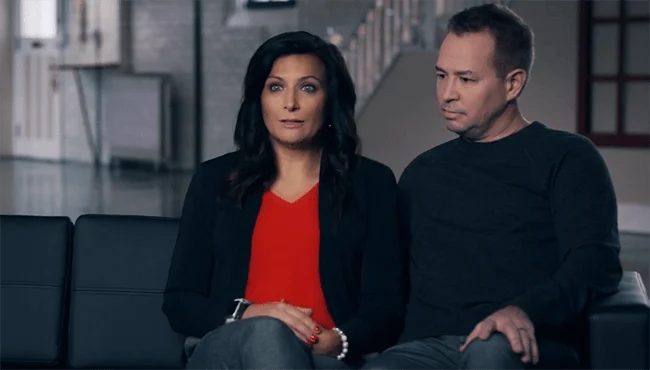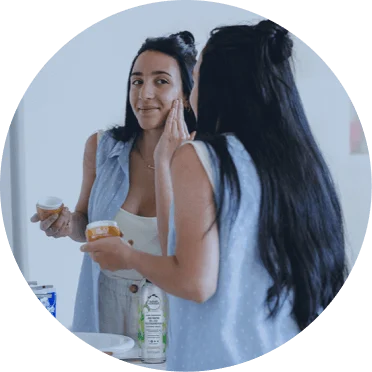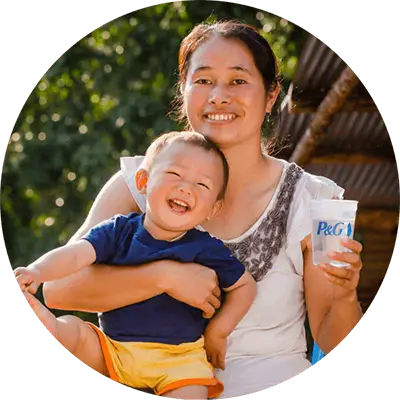2/18/2021
Employee Story of Survival Inspires All During Heart Month
February is American Heart Month and this deeply personal employee story sheds light on the importance of heart health, knowing the signs of heart attack, and how she’s making every beat count.
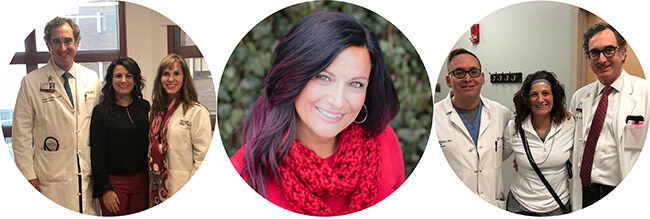
Our employees are the lifeblood of our company. We celebrate, empathize, work and grow together. Among several important observances this month, we recognize American Heart Month, a time to learn about one’s risk for heart disease and steps we can take to improve our heart health. Tonia Elrod from our Home Care organization shared her personal testimony and what easy steps you can take now that may end up saving your – or your family member’s – life.
That Saturday morning started off no different than any other. She slept in, had breakfast. She said a quick goodbye to her husband and kids, and she headed to her circuit-training class, like she does every weekend. She wouldn’t consider herself a gym fanatic, but she knew the training was good for her, it helped to keep things like her cholesterol and blood pressure in check, and at the very least, it cleared her head.
After class, she pulled into her drive, walked in, and after greeting her boys, started to sense a loss of feeling in her arm, felt nauseous, and extremely exhausted.
Then, it all stopped.
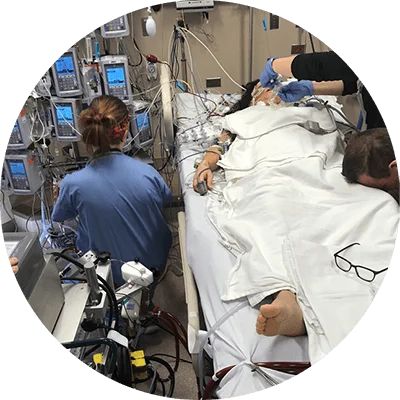
Almost 24 hours later, Tonia Elrod, P&G’s Head of Home Care Global Communications, would wake up at University of Cincinnati Medical Center having survived a widow maker heart attack, 5 cardiac arrests, and breathing, alive only by life support.
It has now been two years since Tonia’s life took a dramatic pause. She’s back at work, she’s exercising (she loves the step-tracker on her Apple watch and prior to the pandemic, she would purposefully park a half-mile from the office to get her steps in) and in many ways, life appears to have stabilized. But it is nothing short of a miracle.
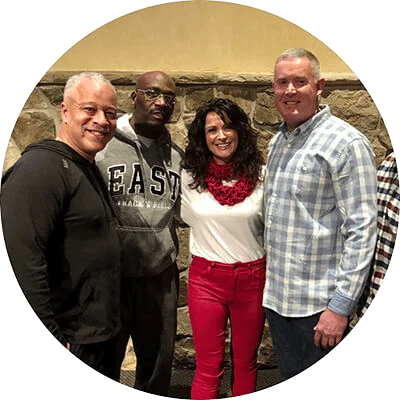
Q: Were there any warning signs? Had you been to your doctor recently?
“I had been doing what I was supposed to do. Four months before that Saturday, I had an EKG and an echo (an echocardiogram is an ultrasound of the heart) and they were both fine, everything looked great. I was told that during the workout, it’s possible a big piece of plaque broke off and blocked my artery. But that’s just one possible explanation.”
Q: I can’t imagine the fear your family experienced in those hours of not knowing. What were your prospects, really?
“So, people can have cardiac arrest and or a heart attack – I had both at home. In terms of cardiac arrest, the number of people who survive outside the hospital is 10%. Survival inside the hospital grows to 20%, but still not great survival odds. After getting to the hospital, I went into cardiac arrest four more times and I was placed on ECMO (extracorporeal membrane oxygenation) device, which is life support. ECMO patients only have a 40% chance of surviving this aggressive life support. They really had no idea how this would end.”
Q: How did this incident change your outlook on life – on your day-to-day?
“I think my life overall is much slower. Things bother me less. I’m not concerned by issues at work, or something’s going wrong, ‘oh my kid forgot to tell me they had to be picked up’ – KIDS. (She chuckles.) It’s just slower. I literally even walk slower.”
Q: How was P&G and your colleagues there for you and your family through this hardship?
“P&G, UC Health, my family, we had no idea how long I would be out – or if I would even make it. They said I ‘woke up’ after 48 hours, but for a week and a half to two weeks, I was not ‘awake,’ in the sense we understand. P&G helped my husband fill out all paperwork and reassured him that I would still have my job and Mary Lynn Ferguson-McHugh said she would hold my role for me… and they had every right to fill it.”
Q: What surprised you about the way the Company responded?
“Well our team has been talking about being cross functional and they REALLY were while I was out. I had teammates from R&D, Product Supply, Brand, Communications - ALL covering my role for me. These people just came through for me and crushed it. I think that speaks to the importance of cross-functional working, and our amazing people.”
The journey forward has not been without its challenges – Tonia shared that she’s completed hours of occupational therapy, physical therapy, vocabulary refreshing, and memory exercises, and slowly regained her stability to trek from 1000 to 10,000 steps per day. If she takes time off from her therapy, she can tell. But, in true ‘P&Ger’ fashion, Tonia doesn’t consider this experience a setback but rather an impetus to focus on educating others and embracing life. Tonia’s laser-focused on raising awareness about heart health.
Tonia shares a debt of gratitude with her team at UC Health. She has shared her story with the hospital and in several forums so that people may learn from her experience. Heart attacks can happen to health people. Tonia returned to the CVICU a year later. Check out the emotional reunion here.
As she reflects on that harrowing experience, and the impact she still feels today, Tonia smiles.
“Life happens to all of us. It’s picking up the pieces and creating something different that is the real challenge. We are all stronger than we think. And most importantly, we are all more loved than we think.”
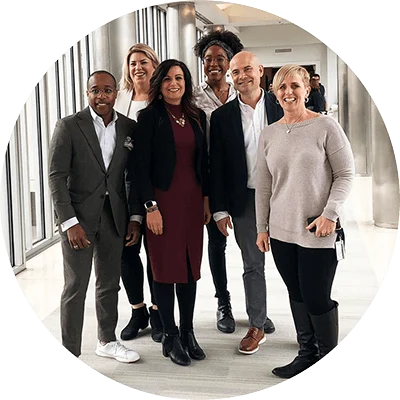
Tonia is teaming up with her family, Erin Klotzbach Hyatt, and the American Heart Association. They want you to know:
- Heart disease is the number #1 killer of men and women. 88% of cardiac arrests occur at home, and only about 10% of people who experience cardiac arrest outside a hospital survive.
- Learn the signs and symptoms. Women’s symptoms are often less obvious than men’s. Arriving home after a typical workout at her local gym, Tonia felt very tired, was nauseous, had sensitivity to light, and a dull ache in her left arm.
- See your doctor regularly and take advantage of health wellness programs at work. P&G provides blood pressure and cholesterol checks; utilize the resources of your company.
- Brush up on CPR training – it can save lives if given properly and immediately to sudden cardiac arrest victims.
- Talk to your kids about responding to an emergency incident and how to call 9-1-1. Tonia’s two young sons, who were home at the time of Tonia’s cardiac arrest, responded immediately, saving her life.
Tonia recently shared her experience and road to recovery in a podcast that focused on resilience. You can listen to her entire story here.
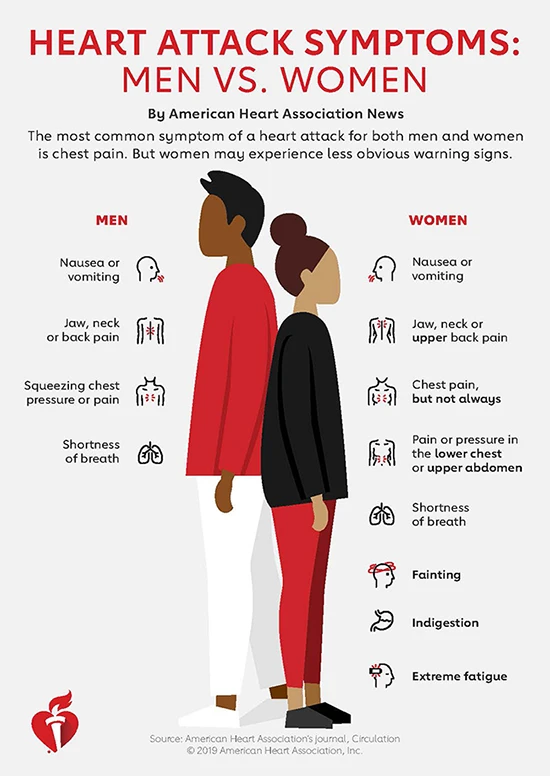
Join the conversation about heart health on social media, search #GoRedforWomen #GoRedWomenofImpact or #LiveFierceGoRed
